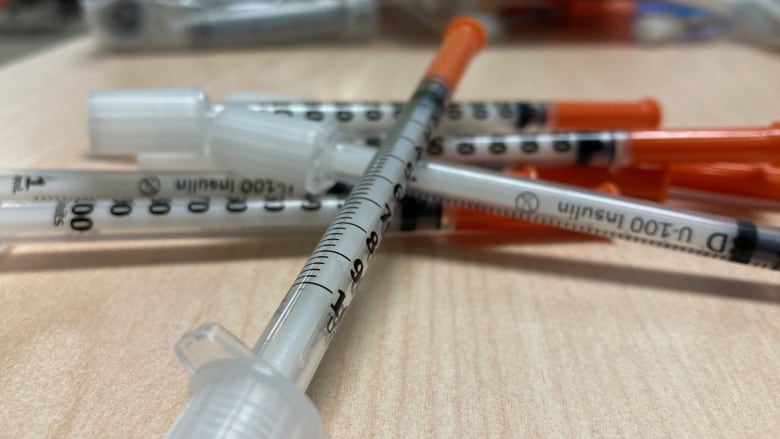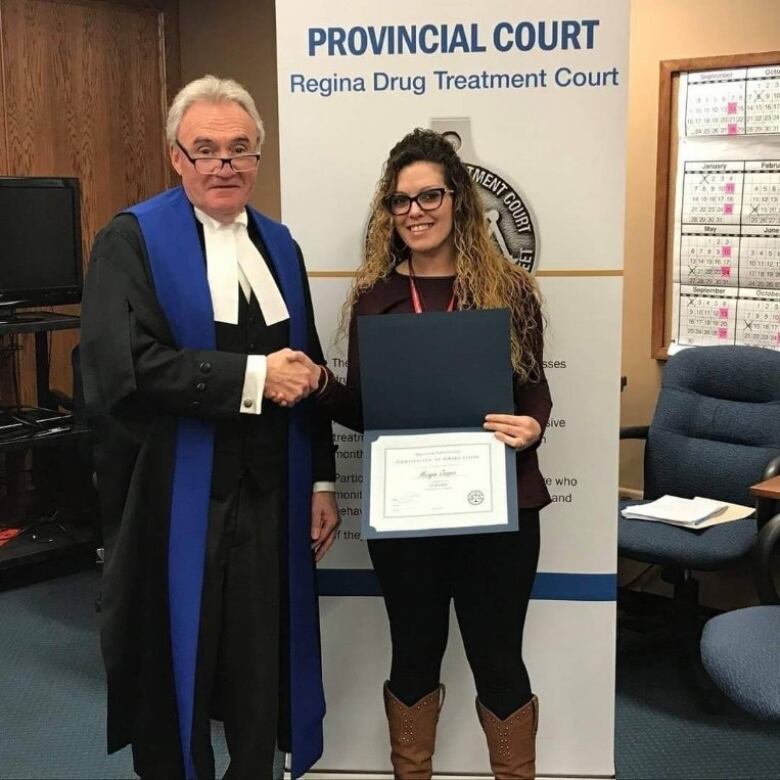Drug counsellor defends Sask.'s move away from clean pipes, free needles
The government plans to address the provinces addiction crisis, adding 500 new treatment spaces

An addictions counsellor who was involved with advisingthe Saskatchewan government on its move to a"recovery-oriented" addictions model is defending the province's decision to stopproviding clean pipes and require people to return used needles to receive new ones.
The province announced its decision on Jan. 18.
Critics including the Saskatchewan Union of Nurses,addictions workers, organizations like Prairie Harm Reduction in Saskatoonand many others have spoken againstthe changes, saying they setback efforts to stop the transmission of HIV/AIDs and flyin the face of decades of science.
Provincial Minister of Mental Health and Addictions Tim McLeod has continually defended the changes, saying that the province is moving to a "recovery-oriented" model andthat programs like supervised consumption sites and clean pipes donot solve addictions.
Rand Teed, who has been an addictions counsellor for the last 25 years, worked with ROSC Solutions Group, a company that advised the province on the recovery-oriented model.
Teed said the focus of recovery-oriented care is getting people into treatment more quickly, and keep them in longer, to deal with the problems that are underneath the substance use.
"What they need is help to get some decent medical support, help to get some decent housing, help to get some decent food," said Teed. "Not necessarily a new crack pipe or an unlimited access to needles."
Teed said he hopes to see more open treatment spaces to reduce wait times for those who seek help, and more support after they get out of treatment.
"One of the things that really makes a difference with anybody, and particularly people with addiction, is feeling that they're cared about," Teed said. "I'm not totally certain that giving somebody something that is actually continuing their harm, is really going to make them feel cared about."
'We have to keep people alive long enough to find recovery': former drug user
The province previously announced plans to open 500 new treatment spaces.
Meagan Jasper, who has not used drugsfor seven years afterstruggling with addiction since she was 12 or 13 years old, saidmore treatment space is great, but that she isn't happy about the government's changes on clean pipes and needle exchanges.
She knows the importance of access to clean equipment to prevent the spread of disease.
"People, they're sharing, because they have limited supply, limited funds, all that stuff," Jasper said.

Jasper, who lives in Moose Jaw,said its important to keep people as healthy as possible before they get into treatment.
"What good are those treatment spaces when they're not gonna be ready right away and when everybody's dead," she said. "We have to keep people alive long enough to find recovery."
Dr. Brian Gellarsaid on CBC's Blue Sky earlier this week that he wishes people would look at addictions the way health-care professionals do, as a disease process that needs to be treated.
Part of that treatment is that people have to be alive to get treatment.
"This is something that goes across all walks of life, all income levels and impacts everybody,"Gellar told host Leisha Grebinski."Addictions are real disease and needto be managed as such."













_(720p).jpg)


 OFFICIAL HD MUSIC VIDEO.jpg)
.jpg)



























































































